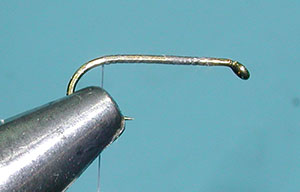
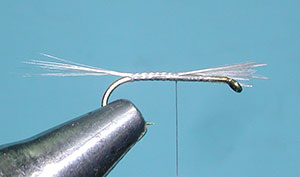
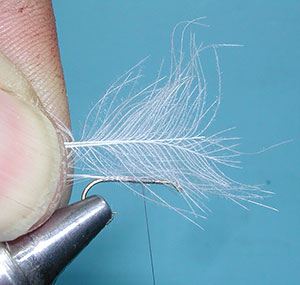
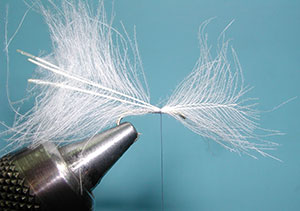
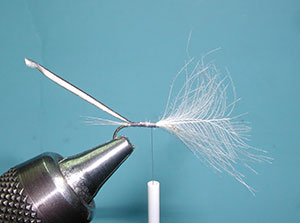
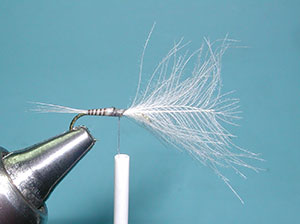
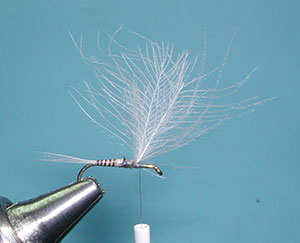
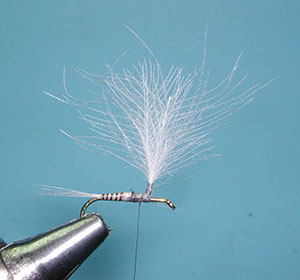
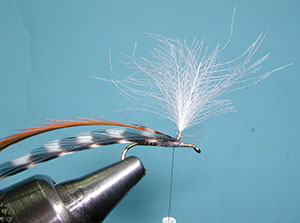
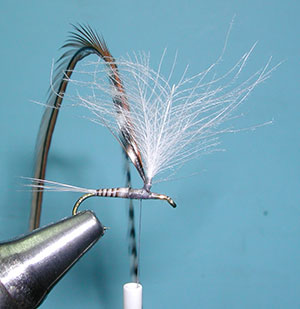
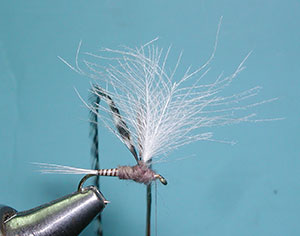
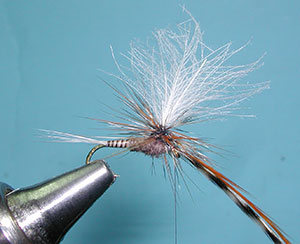
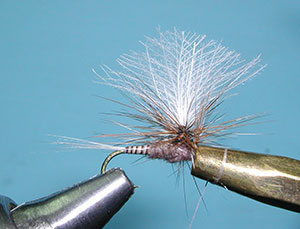
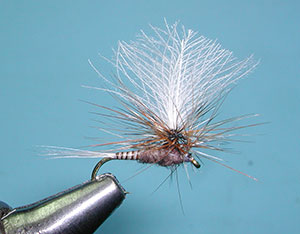
| 1. Attach the hook to the vise and lay a thread foundation from behind the eye to the bend of the hook. |
 |
|
| 2. Select about 6-8 stiff hackles from a spade feather. The length should be the same length as the hook shank. Attach the tailing fibers at the bend of the hook and wrap the tag ends to about the middle of the shank. Trim the tags and wrap over. |
 |
|
| 3. Select 3 CDC feathers with a prominent stem for the wingpost. Keeping the tips aligned and position the at the 3/4 position of the hook shank. |
 |
|
|
4. Apply 2-3 tight wraps and trim off the tag ends. Secure with additional wraps over the ends and continue to thread wraps to the bend of the hook. |
 |
|
| 5. Select a goose biot and secure the tip to the bend of the hook with the notch facing downwards. |  |
|
| 6. Wrap the biot forward. These are short so secure the end of the biot behind the wingpost with thread wraps. |
 |
|
| 7. Lift the CDC wingpost upwards and apply a number of thread wraps just in front of the post to keep the wingpost upright. |
 |
|
| 8. Next wrap around the base of the wingpost to provide a sturdy post for the hackles. |
 |
|
| 9. Attach the two hackles by their base to the front side of the wingpost. Leave enough bare quill of the hackle base so that it can be anchored cleanly to the vertical base of the wingpost with thread wraps without capturing any hackle fibers. |
 |
|
|
10. Secure the hackle base to the side of the wingpost. |
 |
|
| 11. Apply dubbing for a thorax around the wingpost, hiding the hackle ends. |  |
|
| 12. Wrap the hackle around the base of the wingpost 3-5 times and secure the hackle with a couple of thread wraps just behind the eye of the hook. |
 |
|
| 13. Wrap a small thread head and use a half hitch tool to secure the thread. Then lift up on the hackle and apply a whip finish. A drop of head cement is recommended. I also trimmed the CDC somewhat for a cleaner appearance. |
 |
|
| 14. The finished CDC Biot Parachute, Adams. |
 |
|
©2023 Steve Schalla
This page is not to be copied without
my explicit permission.